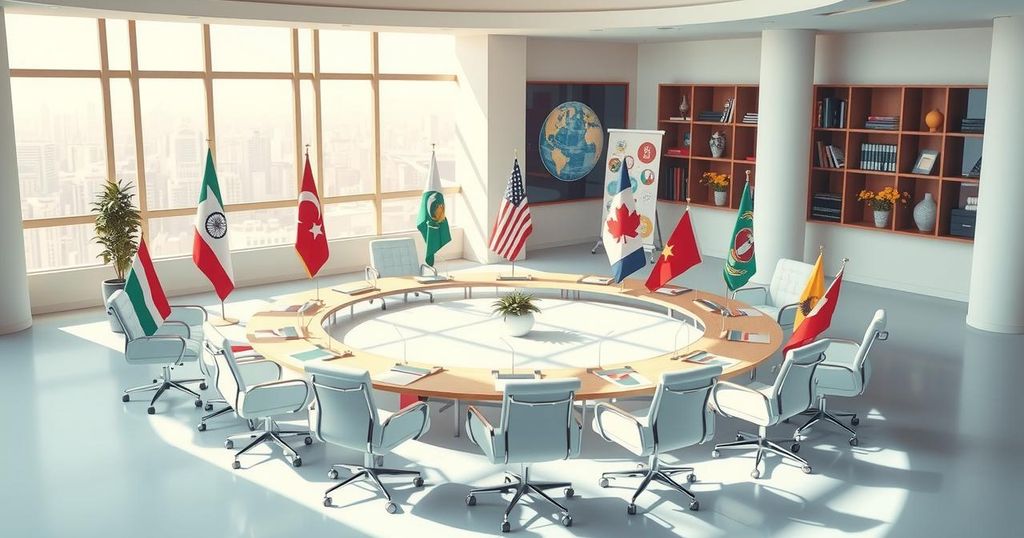Syria’s Historic Attendance at Donor Conference: A Step Toward Recovery

Syria is participating in its first donor conference in Brussels, marking a pivotal moment for its new leadership post-Bashar Assad era. The conference aims to gather support for rebuilding the war-torn nation, which faces economic challenges and ongoing violence. Security concerns persist amidst recent clashes, while humanitarian needs remain critical, with millions displaced and the economy in disarray.
Syria’s participation in the upcoming donor conference in Brussels marks a significant milestone for its new administration under interim President Ahmad Al-Sharaa. This conference aims to gather international support for a peaceful transition following the ousting of former President Bashar Assad amid ongoing civil unrest. Syria will be represented by Foreign Minister Asaad Hassan al-Shibani, and this will be the first time Syria attends this kind of event since the onset of the civil war.
The conference convened by the European Union will include representatives from Western nations, neighboring Arab countries, and U.N. agencies, demonstrating the urgency to leverage the country’s transitional phase. Amidst struggles to maintain control over territory ravaged by years of conflict, estimates suggest that rebuilding Syria will require between $250 billion to $400 billion, an aspiration hindered by existing Western sanctions that have significantly stunted its economy.
The interim government hopes to enhance its credibility internationally and secure aid during this conference, which occurs amid security challenges. Recent attacks involving loyalists of the former president against the new regime have created a precarious environment, necessitating a call for stability before extensive international cooperation can be realized. The EU’s commitment includes respecting Syria’s sovereignty while supporting a successful transition free from external meddling.
Ahmad al-Sharaa, a former insurgent leader, has signed a temporary constitution that sustains Islamist governance over the next five years, which raises concerns among various religious and ethnic groups. While many welcome the end of the Assad regime, minorities remain apprehensive about their rights under the new leadership. The possibility of reimplementing sanctions remains if the situation deteriorates.
Economically, the nation is critically depleted, struggling with severe electricity shortages, high unemployment, and widespread destruction. Of particular concern is the displacement crisis; millions remain internally displaced in Syria, with over 4.7 million refugees scattered primarily in neighboring countries. The U.N. refugee agency has reported these figures, indicating that the potential to revitalize Syria hinges upon not only international support but also local stability.
In spite of these challenges, optimism exists, echoed by U.N. humanitarian chief Tom Fletcher, noting operational improvements under the new governance. The aim of the donor conference extends beyond merely obtaining funds; it seeks a long-term strategy for rebuilding infrastructure, enhancing healthcare and education, and fostering job creation for a sustainable recovery.
Syria’s attendance at the donor conference signifies a pivotal moment in its efforts to garner international support for recovery and stabilization following years of conflict. Though there are grave economic and humanitarian challenges, the new leadership seeks to establish legitimacy and restore the nation’s functionality. The success of the conference hinges on securing immediate aid while ensuring ongoing cooperation centered around peace and stability.
Original Source: apnews.com






